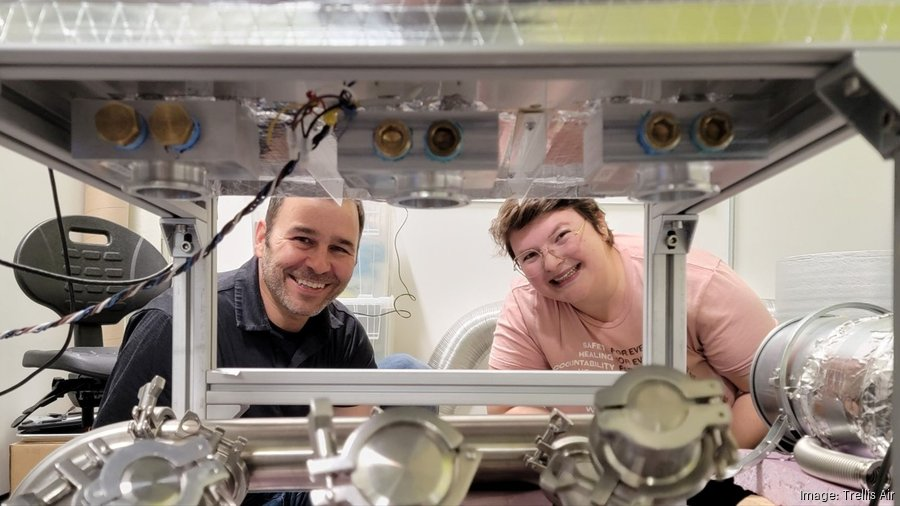The Harvard research funding crisis has triggered significant disruption within the university’s esteemed research teams, particularly at the Wyss Institute, where Don Ingber leads groundbreaking projects. As the federal government imposed a stop-work order following Harvard’s refusal to comply with controversial demands from the Trump administration, vital initiatives, including innovative organ-on-a-chip technologies, have faced an uncertain future. With over $19 million in government contracts abruptly frozen, researchers find themselves in a scramble to secure alternative funding and retain essential talent. The impact of these research funding cuts not only threatens the progress of scientific discovery but also raises alarming questions about the future of American innovation. As the situation unfolds, the call for reinstatement of these critical funds is becoming more urgent than ever to ensure the continuity of pioneering research essential for societal advancement.
The ongoing funding turmoil at Harvard University has thrown its research community into disarray, notably affecting projects at the Wyss Institute led by prominent figure Don Ingber. After receiving a stop-work notice related to federal contract disputes, the future of numerous essential studies, including cutting-edge organ-on-a-chip research, now hangs in the balance. The halt in research funding has created a ripple effect, causing widespread anxiety among researchers and students alike. With access to critical financial resources cut off, many scientists are urgently seeking alternative funding avenues to sustain their work and retain their skilled personnel. The ramifications of these funding disruptions could extend far beyond Harvard, threatening the integrity of the broader landscape of American research and innovation.
The Impacts of the Harvard Research Funding Crisis
The recent Harvard research funding crisis arising from the federal stop-work order has sent ripples through academia and has significant implications for innovation in the United States. In a climate where approximately $2.2 billion in funding is at stake, researchers at universities, particularly within institutions like Harvard, are grappling with uncertainty. This order is not just a bureaucratic inconvenience; it threatens to undo years of critical research and development. As Don Ingber of the Wyss Institute emphasized, projects that were making major strides in organ-on-a-chip technology, which could pioneer new medical treatments and enhance our understanding of human biology, now teeter on the brink of collapse.
This crisis has also raised alarm among the scientific community about the future of American innovation. Research funding cuts impact not only current projects but also the ability to attract top talent and maintain interdisciplinary collaboration that has been a hallmark of U.S. research institutions. As potential researchers weigh their options, many are reconsidering moves to the U.S., fearing instability. The fallout may lead to a brain drain, where top scientific minds are drawn away from American labs, impacting the country’s standing in global science and technology.
Addressing the Stop-Work Order and Its Implications
The stop-work order, as outlined by Ingber, has led to a frantic response from the Wyss Institute as they navigate the suspension of vital projects. This situation is particularly dire for ongoing research using organ-on-a-chip technology, designed to study the effects of radiation on human tissues. The loss of such cutting-edge projects would not only set back scientific progress but could also halt advancements in medical treatments essential for patients undergoing radiation therapy, particularly in cancer care. Researchers are faced with the urgent task of reallocating resources and personnel to ensure that vital work continues under alternative funding mechanisms, as many struggle to find their footing amidst the chaos.
Consequently, decisions made in haste can have long-term implications. Research integrity and personnel wellbeing are at the forefront of Ingber’s leadership approach. The emotional toll on scientists and graduate students, many of whom are international hires, cannot be overstated. As the current landscape becomes more precarious, institutions must consider how to bring back confidence in academic careers, which form the backbone of the country’s research apparatus. Perhaps the most pressing challenge is ensuring that future generations of researchers see America as a viable place for their careers, as the shadows of these funding cuts loom large.
Navigating Uncertainty: The Future of Research Funding
In the wake of the Harvard research funding crisis, navigating uncertainty has become a daily reality for researchers and administrators alike. The ongoing legal battles and administrative red tape threaten to create a chilling effect, stifling innovation and halting projects that could lead to groundbreaking discoveries. Ingber has expressed deep frustration not only with the halt on funding but also with the broader implications for the American research ecosystem, which has thrived on government investment and support for high-risk projects. The fear of instability has led many talented scientists to reconsider their positions, placing academia’s future at a critical juncture.
The conversation surrounding research funding must shift to address these challenges directly. This crisis emphasizes the necessity for clear communication between government bodies and academic institutions. To sustain the United States’ competitive edge in global innovation, a commitment to reinstating funding and supporting projects like Ingber’s is crucial. Fostering a supportive environment that encourages research, enhances collaboration across government and academia, and ultimately restores faith in funding mechanisms will be essential for overcoming the current impasse.
The Role of Innovation in America’s Economy
The ongoing research funding crisis at Harvard and across the nation is symptomatic of larger underlying tensions between government policy and academic innovation. Ingber has highlighted how the creative, high-stakes environment fostered by funding for research has propelled American innovation for decades. By investing in exploratory science, U.S. institutions have led the world in developing technologies that have fundamentally shaped modern life, from advanced medical treatments to the very devices we rely on daily. Without adequate funding, this vital engine of innovation risks sputtering to a halt.
Therefore, the resumption and enhancement of research funding must be viewed not merely as an academic necessity but an economic imperative. The collaborative synergy between government and academia has historically been a cornerstone of America’s global leadership in technology and science. As Ingber articulated, this relationship has cultivated an environment where scientific inquiries can transform into technologies that drive the economy forward. Safeguarding this partnership will be essential to ensure that America remains at the forefront of scientific discovery and technological advancement.
Implications for International Collaboration in Research
The implications of the recent funding crisis extend beyond domestic borders, potentially jeopardizing international collaboration in scientific research. Harvard’s standing as a global leader in research attracts international talent, which enriches the academic environment through diverse perspectives and ideas. As the uncertainty mounts due to funding cuts and stop-work orders, foreign researchers may be discouraged from seeking opportunities in the U.S. If scientists perceive the landscape as unstable or hostile, the long-term consequences could stifle innovation that thrives on diversity and collaboration across disciplines and borders.
Moreover, Ingber’s observations on the changing attitudes of prospective international recruits highlight a critical concern. The competitive edge of U.S. research lies in its ability to attract brilliant minds from across the globe. If these individuals opt for more stable environments elsewhere, the U.S. may fall behind in crucial fields that rely on cutting-edge research. Strengthening international partnerships and promoting a welcoming atmosphere for global talent must become a priority to preserve the vibrancy of American academia.
Potential Solutions: Ensuring Stability in Research Funding
To counter the adverse effects of the funding crisis, a multifaceted approach is necessary to restore confidence in American research. Engaging with government officials to advocate for reinstating funding is a critical first step. Academic leaders like Don Ingber have the opportunity to serve as voices for urgent reform, pointing out the long-term economic implications of research funding cuts. Collaborative dialogues between universities, federal agencies, and industry partners can help clarify funding pathways, ensuring their sustainability and addressing any bureaucratic inefficiencies that have surfaced in recent months.
Furthermore, universities can explore alternative funding avenues, promoting partnerships with private enterprises and philanthropic organizations to buffer against federal funding volatility. By diversifying funding sources, institutions can create a more resilient research ecosystem, capable of weathering challenges as they arise. Engaging in proactive planning and resource allocation strategies will not only help mitigate immediate impacts but also lay the groundwork for a more secure future in research innovation.
Building a Supportive Environment for Future Researchers
As the current crisis unfolds, the need for a supportive environment for researchers has never been more urgent. Don Ingber’s commitment to protecting his team underscores a vital aspect of leadership during turbulent times—prioritizing the welfare of researchers and students. Institutions must ensure that their personnel feel secure and valued, fostering a culture of innovation that actively encourages scientific exploration and ambition. This involves providing clear communication about funding and project statuses, as well as offering career development resources for affected scientists looking for new opportunities.
Moreover, creating mentorship programs and support networks specifically for international researchers can help ease the transition during uncertain times. By building connections and fostering a community of collaboration, universities can enhance their attractiveness as destinations for top talent. Institutions should strive to become not only hubs of research but also safe spaces for innovation and learning, ensuring that America’s legacy as a leader in science and technology remains intact.
Fostering Long-Term Innovation Through Policy Reform
The current crisis highlights the urgent need for policy reform in how research funding is managed and allocated. Academic leaders must advocate for a realignment of priorities that emphasizes the importance of long-term investment in research and development. This reform should involve collaboration across all levels of government, ensuring that the needs of the academic community are recognized and prioritized in policy-making processes. By creating a more conducive regulatory environment, American universities will have the support necessary to sustain groundbreaking research that fuels technological advancements.
In addition to reforming funding policies, promoting public awareness of the critical contributions of research to social and economic progress is essential. Engaging the public in discussions on the value of scientific inquiry can lead to greater support for research initiatives and foster a culture that values innovation. By advocating for the importance of research funding, the broader community can unite behind policies that protect the future of scientific discovery and reinforce America’s position as a leader in innovation.
The Future of Organ-on-a-Chip Research Amid Funding Cuts
Organ-on-a-chip technology has emerged as a revolutionary advancement in biomedical research, yet its future is now uncertain amidst the funding cuts imposed by the government. Projects led by researchers like Don Ingber are at risk of stalling, which could have serious implications for understanding human health, particularly in areas such as drug development and toxicity testing. The ability to model human organ responses on a microchip could lead to significant breakthroughs in treatments and therapies, emphasizing the critical nature of financial backing for these innovative technologies.
Despite these challenges, there remains a glimmer of hope. As the scientific community rallies to address the ongoing funding crisis, there may be opportunities to pivot projects toward more sustainable funding sources. Collaboration with private industry, securing grants, and leveraging public interest in health innovation can help sustain critical research endeavors. Ingber’s work at the Wyss Institute is a testament to the potential within organ-on-a-chip technologies, and its future may still hold promise through adaptive strategies and partnerships.
Frequently Asked Questions
What led to the Harvard research funding crisis involving the stop-work order?
The Harvard research funding crisis was triggered when the Trump administration issued a stop-work order after Harvard rejected demands related to governance and oversight. This order affected crucial projects including those at the Wyss Institute led by Don Ingber, which had secured over $19 million in contracts for organ-on-a-chip technology.
Who is Don Ingber and what role did he play in the Harvard research funding crisis?
Don Ingber is the founding director of the Wyss Institute for Biologically Inspired Engineering at Harvard. He faced a stop-work order impacting his organ-on-a-chip projects, which exemplified the broader issue of funding cuts affecting numerous researchers at the University during the Harvard research funding crisis.
What impact did the stop-work order have on research projects at the Wyss Institute?
The stop-work order resulted in immediate halts to significant research projects at the Wyss Institute, particularly those involving organ-on-a-chip technology. Researchers had to scramble to protect their work and personnel as Harvard faced substantial research funding cuts due to the conflict with the federal government.
How is organ-on-a-chip technology relevant to the current Harvard research funding crisis?
Organ-on-a-chip technology, developed at the Wyss Institute, is crucial for research into various medical applications, such as testing radiation effects and drug responses. The halt of funding due to the Harvard research funding crisis puts critical health-related research at risk, impacting both current and future scientific advancements.
What alternatives are being considered by researchers following the Harvard research funding cuts?
In response to the Harvard research funding cuts and the stop-work order, researchers like Don Ingber are seeking internal funding and alternative grants to maintain employment for affected staff and continue vital research activities, although many projects have been paused.
What are the implications of the Harvard research funding crisis for the future of American innovation?
The Harvard research funding crisis threatens the longstanding partnership between government and academia that has fueled American innovation. The cuts and stop-work orders could hinder scientific progress, discourage international talent, and undermine the foundation of technology development essential to the U.S. economy.
What legal actions has Harvard undertaken regarding the research funding crisis?
In response to the stop-work order and the ensuing Harvard research funding crisis, Harvard filed a lawsuit against the federal government, claiming that the demands for changes in governance and funding restrictions were unconstitutional and illegal.
How does the government funding freeze affect the recruitment of international researchers at Harvard?
The government funding freeze has made the environment uncertain for international researchers considering positions at Harvard, leading to some retracting job acceptances due to concerns about job stability and safety, significantly affecting the recruitment of top global talent amid the Harvard research funding crisis.
| Key Points | Details | |
|---|---|---|
| Background of the crisis | Harvard faced a research funding crisis after rejecting demands from the Trump administration, leading to a $2.2 billion funding freeze. | |
| Impact on research | Important projects, including organ-on-a-chip technology, are at risk as researchers scramble to adjust to the stop-work orders. | |
| Talented researchers at risk | Researchers and staff are facing uncertain employment situations, and some are leaving for security abroad. | |
| Legal response | Harvard filed a lawsuit against the federal government to overturn the orders and secure funding. | |
| Risks of ongoing projects | Key projects have halted, risking the progress of student research and critical scientific advancements. | |
Summary
The Harvard research funding crisis is a pivotal moment that threatens the very foundation of America’s innovation landscape. Following the Trump administration’s drastic measures leading to a $2.2 billion funding freeze, many researchers face halted projects and uncertain futures. The potential impact on scientific advancements and the recruitment of talented minds is significant, as the collaboration between academia and government has historically fueled technological development. Harvard’s legal action aims to restore funding and alleviate the immediate concerns of its researchers, but the ongoing uncertainty raises critical questions about the future of American science and its role in global innovation.






